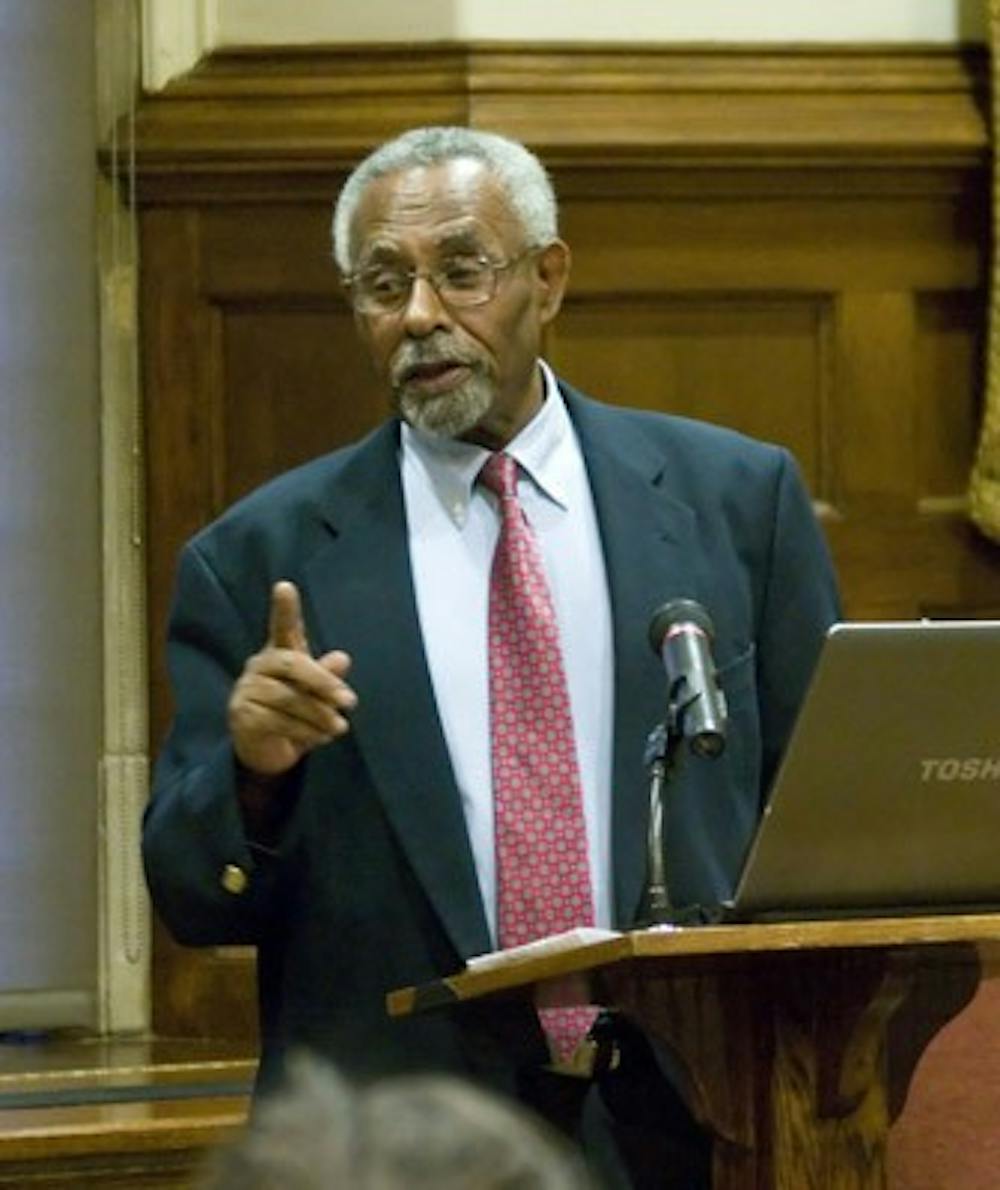Speaking to a crowd of 30, Ethiopian economist Befekadu Degefe presented a course of action President-elect Barack Obama could use to restore the U.S. economy and consumer confidence: create more jobs.
Degefe suggested a solution reminiscent of the Civilian Conservations Corps created by President Franklin D. Roosevelt's New Deal to recover from the Great Depression that set unemployed citizens to work building roads and other public works across the nation.
"Construction is always a good index of how the country is doing," he said.
Degefe said that by employing all citizens, at any wage, who are currently without a job -- restoring bridges, improving the road system, improving public housing, etc -- the economy could not only be improved, but even be propelled into a "boom."
If government officials employed these people, a whole new part of the population would gain "purchasing capacity" and be inspired to spend money, therefore stimulating the economy, Degefe said.
"People need to get out there and spend money," Degefe said. "Or else there will be no rise again and unemployment will increase."
Certainly the U.S. government would have to pay money to get these programs into motion, Degefe said, but that shouldn't even be considered a problem.
"The U.S. economy is the largest economy in the world," he said. "I don't think you know how big it is."
The U.S. gross domestic product is about $15 trillion, which is four times the amount of Japan, the second largest economy in the world, Degefe said. The U.S. administration has no one to answer to if it has to dig the country deeper into debt to start employment programs such as this, he said. The government would make the money back through the amount of taxes the newly employed would pay, the amount of money they would inject back into the economy and the unemployment wages the government would no longer have to pay.
"It's not a case of supply creating demand," Degefe said. "We need to bring in a situation that demand creates supply."
Enjoy what you're reading?
Signup for our newsletter
And with a new sense of confidence as consumers, the American public would become less "depressed because the economy is depressed," he said. As more people begin spending money who were not able to before, the economy would slowly improve, other people would get a "psychological boost" and become more inclined to spend money.
Degefe has a PhD in economics from Humboldt University in Germany and a master's in economy from Vanderbilt University. His visit was orchestrated by the Scholars at Risk program. Richmond is a part of this network of universities that work to ensure the academic freedom and human rights of scholars worldwide by providing a place for them to live and continue studying after their work put them in danger.
Degefe was released from prison by Ethiopian President Girma Woldegiorgis July 20, 2007, just five days after he and 38 Ethiopian opposition leaders were sentenced to life imprisonment and stripped of their right to vote by Ethiopia's high court on charges of "outrages against the constitution," and "inciting an armed rebellion," according to the National Academies' Committee on Human Rights Web site.
During his time living in America and observing what has become a global economic meltdown, he has been developing his concept of economic pragmatism, which he says is a break from the current philosophy of economics as ideology.
"The U.S. economy is an engine to the entire world," said Degefe. "When the U.S. is in a depression, the entire world is in a depression. ... When the U.S. economy is in a boom, the entire world is in a boom ..."
After Chinese officials announced a $586 billion bailout plan to bolster businesses and infrastructure projects on Sunday, just weeks after President George Bush announced a $700 billion U.S. stimulus package, the fact that the U.S. economy is tied with that of the rest of the world is undeniable.
But, the U.S. economy is not yet in an official recession, Degefe said. To be considered a recession, the United States would have to post a negative GDP growth for two quarters in a row. In the third quarter of 2008, the United States left with a loss of 3 percent. As the end of the fourth quarter approaches, Degefe said it's likely the American economy will not turn around to get the GDP growth back into the positives.
Degefe, however, remained faithful in the resilient world leader he says he and most everyone around the world sees America as.
"This is an economy that is going to pull this world together," he said.
Contact staff writer Megan Wilson at megan.wilson@richmond.edu
Support independent student media
You can make a tax-deductible donation by clicking the button below, which takes you to our secure PayPal account. The page is set up to receive contributions in whatever amount you designate. We look forward to using the money we raise to further our mission of providing honest and accurate information to students, faculty, staff, alumni and others in the general public.
Donate Now



